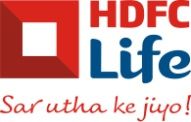 HDFC Life, India’s leading private life insurance company, conducted a survey of the current state financial freedom in India, which also captured the current state of health planning among Indian consumers. The survey showed that a whopping 91 per cent of Indian consumers do not have a comprehensive health insurance plan that would cover all of their short and long term health contingencies.
HDFC Life, India’s leading private life insurance company, conducted a survey of the current state financial freedom in India, which also captured the current state of health planning among Indian consumers. The survey showed that a whopping 91 per cent of Indian consumers do not have a comprehensive health insurance plan that would cover all of their short and long term health contingencies.
The Health Planning Index seeks to understand and measure the comprehensiveness of health planning of Indian consumers; whether they monitor their health plan regularly and under what circumstances they modify their health plan.
Speaking on the occasion, Mr. Sanjay Tripathy, Senior Executive Vice President – Marketing, Analytics, Digital & E-Commerce,‎HDFC Life said, “In the second edition of our Life Freedom Index, we have focused on Health Planning among Indians as we are increasingly seeing cases of unforeseen critical illnesses impacting Indian families and depriving them of their savings. Advanced treatments and technologies have increased the average lifespan of Indians in Tier I and Tier II cities, but that comes at a cost that consumers should be prepared for.â€
The low awareness and preparedness on acquiring health insurance is actually reflected in the Health Planning Index which is pegged at just about 40.1 (on a scale of 100), indicating that Indians do not have adequate health plans in place and have a long way to go before achieving a complete state of freedom with respect to their healthcare goals.
“The overall findings reveal apathy towards health planning and it will be our endeavour to help consumers plan appropriately for their health. We view this as an opportunity to spread awareness on the significance of health planning and will focus towards customizing our products and services to suit the needs of consumers,†Mr Tripathy added.
A few of the key findings of the report are –
- 9% have a comprehensive health plan to cover short and long term health problems
- Critical illness of close family/ friends (at 46%), is the most significant trigger that influenced customer’s healthcare goals or realigning of their health plans. Achieving certain age milestones, (22%), is the second major turning point, for customers to realign and review their health plans.
- The level of health planning increases with the age of Indian consumers, but only after fulfilling some financial goals. Young Aspirants at a Health Planning Index score of 29.4 measured the lowest, as they are at an early stage of their professional lives. Most of the Young Aspirants (43%) have started planning for their future, but only 2% believe they have a comprehensive health plan. Wisdom Investors notched the highest ranking, with a Health Planning Index score of 46.9, with stronger health plans.
- A majority of Indian consumers (49%) do not have a health plan. For those who have health plans, only 11% review them regularly. It’s noteworthy that only 2% of the consumers with health plans across all categories “do not update†their health plans. This indicates that the ones that do have a health plan have developed a habit of reviewing and updating their plans, although not at very frequent intervals.
- Health planning differs significantly between SEC classes – SEC A Indian consumers score substantially higher than their SEC B counterparts.
- The other key findings suggest that Health planning is similar across Tier I and II cities; Wisdom Investors (48.2) lead in health planning in Tier I cities while Proud Parents (50.2) score highest HPI in Tier II cities.
1,600 respondents were interviewed in a survey conducted during Jan-Feb 2016 across ten Indian cities. The findings from the survey were distilled into various specific measurement indices that collectively form an overall “Life Freedom Index”. The customer groups comprised of four segments in Proud Parents (PP) in age group 30-45 years, Wisdom Investor (WI) 45 – 60 years, Young Aspirant (YA) – aged 20 – 30 years, and Smart Women (SW) aged 25 – 45 years, all belonging to socio economic classification – A and B across Tier 1 & Tier 2 towns.



